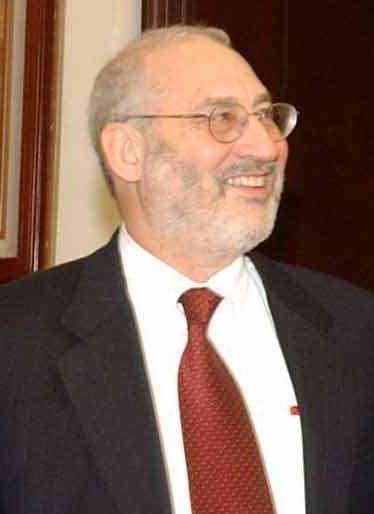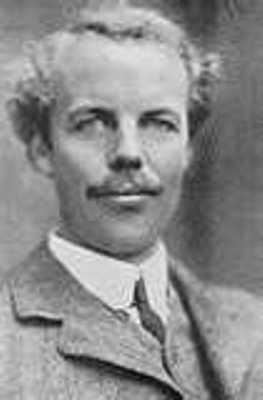|
Joseph E. Stiglitz
Joseph Eugene Stiglitz (; born February 9, 1943) is an American New Keynesian economist, a public policy analyst, political activist, and a professor at Columbia University. He is a recipient of the Nobel Memorial Prize in Economic Sciences (2001) and the John Bates Clark Medal (1979). He is a former senior vice president and chief economist of the World Bank. He is also a former member and chairman of the U.S. Council of Economic Advisers. He is known for his support for the Georgist public finance theory and for his critical view of the management of globalization, of ''laissez-faire'' economists (whom he calls " free-market fundamentalists"), and of international institutions such as the International Monetary Fund and the World Bank. In 2000, Stiglitz founded the Initiative for Policy Dialogue (IPD), a think tank on international development based at Columbia University. He has been a member of the Columbia faculty since 2001 and received the university's highest academic ... [...More Info...] [...Related Items...] OR: [Wikipedia] [Google] [Baidu] |
Chief Economist Of The World Bank
The chief economist of the World Bank (full title: Senior Vice President for Development Economics and Chief Economist of the World Bank Group) is the senior economist at the World Bank Group, tasked with providing intellectual leadership and direction to the bank's overall international development strategy and economic research agenda, at global, regional and country levels. As a member of the bank's senior management team, the person advises the president and bank's management on economic issues. List of chief economists of the World Bank See also *Chief Economist of the International Monetary Fund References World Bank Chief Economists, * {{Economist-stub ... [...More Info...] [...Related Items...] OR: [Wikipedia] [Google] [Baidu] |
Public Economics
Public economics ''(or economics of the public sector)'' is the study of government policy through the lens of economic efficiency and Equity (economics), equity. Public economics builds on the theory of welfare economics and is ultimately used as a tool to improve social welfare. Welfare can be defined in terms of well-being, prosperity, and overall state of being. Public economics provides a framework for thinking about whether or not the government should participate in economic markets and if so to what extent it should do so. Microeconomic theory is utilized to assess whether the private market (economics), market is likely to provide efficient outcomes in the absence of governmental interference; this study involves the analysis of government taxation and government spending, expenditures. This subject encompasses a host of topics notably market failures such as, Public good (economics), public goods, externalities and Imperfect competition, Imperfect Competition, and the cr ... [...More Info...] [...Related Items...] OR: [Wikipedia] [Google] [Baidu] |
New Keynesian Economics
New Keynesian economics is a school of macroeconomics that strives to provide microfoundations, microeconomic foundations for Keynesian economics. It developed partly as a response to criticisms of Keynesian macroeconomics by adherents of new classical macroeconomics. Two main assumptions define the New Keynesian approach to macroeconomics. Like the New Classical approach, New Keynesian macroeconomic analysis usually assumes that households and firms have rational expectations. However, the two schools differ in that New Keynesian analysis usually assumes a variety of market failures. In particular, New Keynesians assume that there is imperfect competition in price and wage setting to help explain why prices and wages can become "Sticky (economics), sticky", which means they do not adjust instantaneously to changes in economic conditions. Wage and price stickiness, and the other present descriptions of market failures in New Keynesian Model (macroeconomics), models, imply that ... [...More Info...] [...Related Items...] OR: [Wikipedia] [Google] [Baidu] |
Information Asymmetry
In contract theory, mechanism design, and economics, an information asymmetry is a situation where one party has more or better information than the other. Information asymmetry creates an imbalance of power in transactions, which can sometimes cause the transactions to be inefficient, causing market failure in the worst case. Examples of this problem are adverse selection, moral hazard,Dembe, Allard E. and Boden, Leslie I. (2000). "Moral Hazard: A Question of Morality?" New Solutions 2000 10(3). 257–79 and monopolies of knowledge. A common way to visualise information asymmetry is with a scale, with one side being the seller and the other the buyer. When the seller has more or better information, the transaction will more likely occur in the seller's favour ("the balance of power has shifted to the seller"). An example of this could be when a used car is sold, the seller is likely to have a much better understanding of the car's condition and hence its market value than the buy ... [...More Info...] [...Related Items...] OR: [Wikipedia] [Google] [Baidu] |
Market Failure
In neoclassical economics, market failure is a situation in which the allocation of goods and services by a free market is not Pareto efficient, often leading to a net loss of economic value.Paul Krugman and Robin Wells Krugman, Robin Wells (2006). ''Economics'', New York, Worth Publishers. The first known use of the term by economists was in 1958,Francis M. Bator (1958). "The Anatomy of Market Failure," ''Quarterly Journal of Economics'', 72(3) pp351–379(press +). but the concept has been traced back to the Victorian writers John Stuart Mill and Henry Sidgwick.Steven G. Medema (2007). "The Hesitant Hand: Mill, Sidgwick, and the Evolution of the Theory of Market Failure," ''History of Political Economy'', 39(3)pp. 331��358. 200Online Working Paper. Market failures are often associated with public goods, time-inconsistent preferences, Information asymmetry, information asymmetries, Market structure, failures of competition, principal–agent problems, externalities,Jean-Jacques L ... [...More Info...] [...Related Items...] OR: [Wikipedia] [Google] [Baidu] |
Unemployment
Unemployment, according to the OECD (Organisation for Economic Co-operation and Development), is the proportion of people above a specified age (usually 15) not being in paid employment or self-employment but currently available for work during the reference period. Unemployment is measured by the unemployment rate, which is the number of people who are unemployed as a percentage of the labour force (the total number of people employed added to those unemployed). Unemployment can have many sources, such as the following: * the status of the economy, which can be influenced by a recession * competition caused by globalization and international trade * new technologies and inventions * policies of the government * regulation and market * war, civil disorder, and natural disasters Unemployment and the status of the economy can be influenced by a country through, for example, fiscal policy. Furthermore, the monetary authority of a country, such as the central bank, can in ... [...More Info...] [...Related Items...] OR: [Wikipedia] [Google] [Baidu] |
Screening (economics)
Screening in economics refers to a strategy of combating adverse selection In economics, insurance, and risk management, adverse selection is a market situation where Information asymmetry, asymmetric information results in a party taking advantage of undisclosed information to benefit more from a contract or trade. In ... – one of the potential decision-making complications in cases of asymmetric information – by the agent(s) with less information. For the purposes of screening, asymmetric information cases assume two economic agents, with agents attempting to engage in some sort of transaction. There often exists a long-term relationship between the two agents, though that qualifier is not necessary. Fundamentally, the Strategy (game theory), strategy involved with screening comprises the “screener” (the agent with less information) attempting to gain further insight or knowledge into private information that the other economic agent possesses which is initially unk ... [...More Info...] [...Related Items...] OR: [Wikipedia] [Google] [Baidu] |
Henry George
Henry George (September 2, 1839 – October 29, 1897) was an American political economist, Social philosophy, social philosopher and journalist. His writing was immensely popular in 19th-century America and sparked several reform movements of the Progressive Era. He inspired the economic philosophy known as Georgism, the belief that people should own the value they produce themselves, but that the economic value of land (economics), land (including natural resources) should belong equally to all members of society. George famously argued that a single tax on land values would create a more productive and just society. His most famous work, ''Progress and Poverty'' (1879), sold millions of copies worldwide. The treatise investigates the paradox of increasing inequality and poverty amid economic and technological progress, the business cycle with its cyclic nature of industrialized economies, and the use of rent capture such as land value taxation and other anti-monopoly reforms ... [...More Info...] [...Related Items...] OR: [Wikipedia] [Google] [Baidu] |
James Mirrlees
Sir James Alexander Mirrlees (5 July 1936 – 29 August 2018) was a British economist and winner of the 1996 Nobel Memorial Prize in Economic Sciences. He was knighted in the 1997 Birthday Honours. Early life and education Born in Minnigaff, Wigtownshire, Mirrlees was educated at Douglas Ewart High School, then at the University of Edinburgh ( MA in Mathematics and Natural Philosophy in 1957) and Trinity College, Cambridge (Mathematical Tripos and PhD in 1963 with thesis title ''Optimum Planning for a Dynamic Economy'', supervised by Richard Stone). He was a very active student debater. A contemporary, Quentin Skinner, has suggested that Mirrlees was a member of the Cambridge Apostles along with fellow Nobel Laureate Amartya Sen during the period. Economics Between 1968 and 1976, Mirrlees was a visiting professor at the Massachusetts Institute of Technology three times. He was also a visiting professor at the University of California, Berkeley (1986) and Yale Universit ... [...More Info...] [...Related Items...] OR: [Wikipedia] [Google] [Baidu] |
John Maynard Keynes
John Maynard Keynes, 1st Baron Keynes ( ; 5 June 1883 – 21 April 1946), was an English economist and philosopher whose ideas fundamentally changed the theory and practice of macroeconomics and the economic policies of governments. Originally trained in mathematics, he built on and greatly refined earlier work on the causes of business cycles. One of the most influential economists of the 20th century, he produced writings that are the basis for the schools of economic thought, school of thought known as Keynesian economics, and its various offshoots. His ideas, reformulated as New Keynesianism, are fundamental to mainstream economics, mainstream macroeconomics. He is known as the "father of macroeconomics". During the Great Depression of the 1930s, Keynes spearheaded Keynesian Revolution, a revolution in economic thinking, challenging the ideas of neoclassical economics that held that free markets would, in the short to medium term, automatically provide full employment, as ... [...More Info...] [...Related Items...] OR: [Wikipedia] [Google] [Baidu] |
Katrin Eggenberger
Katrin Eggenberger (born 8 September 1982) is a Swiss-Liechtensteiner academic and politician who served as the Foreign Minister of Liechtenstein from November 2019 to March 2021. Education and personal life Katrin Eggenberger was born in Werdenberg, Switzerland to a Swiss father and Liechtensteiner mother. Her maternal uncle, Josef Biedermann, was a long-term member of the Liechtenstein parliament and former President of the Progressive Citizens' Party. She is a dual citizen, however she has spent the majority of her life living outside Liechtenstein. She returned to live in Vaduz permanently in October 2019. Eggenberger completed a Bachelor of Business Administration in 2008 through the University of Liechtenstein, studying at Ohio State University where she also competed in synchronized swimming. She competed in synchronized swimming for Switzerland alongside Ariane Schneider at the 2005 World Aquatics Championships in Montreal. Eggenberger completed a Master of Science i ... [...More Info...] [...Related Items...] OR: [Wikipedia] [Google] [Baidu] |





